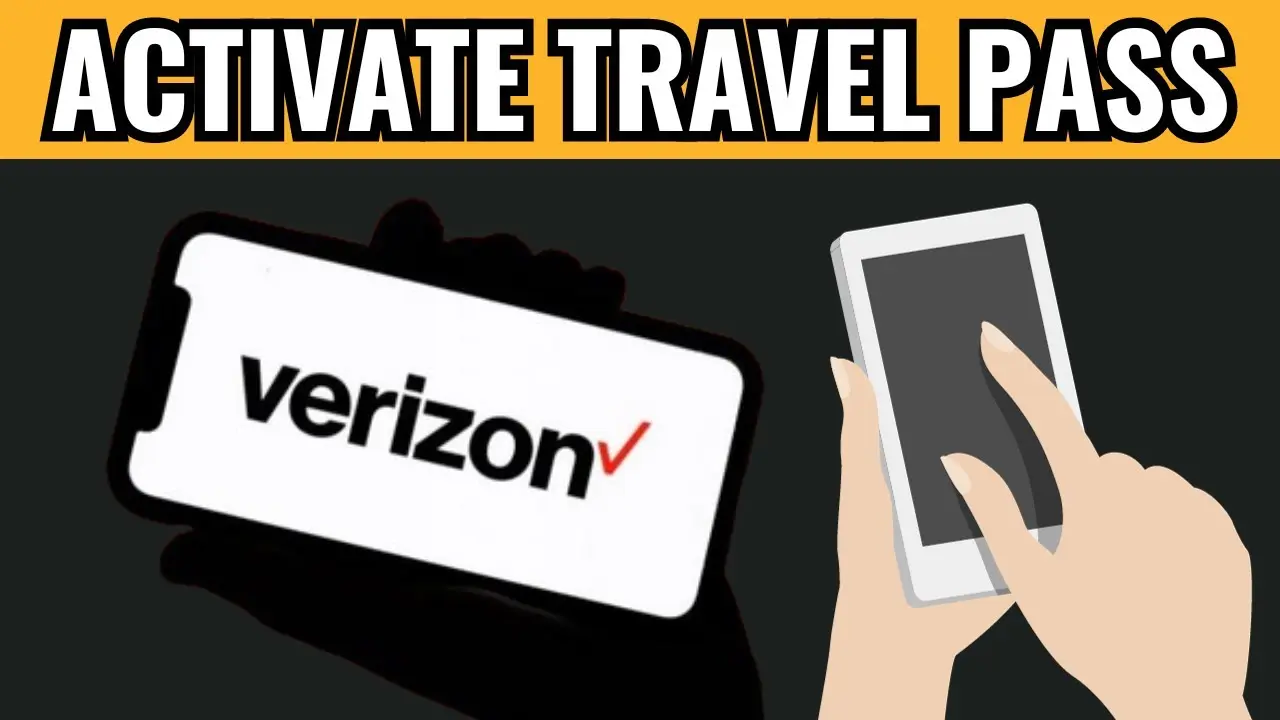Traveling abroad can be an exciting and enriching experience, but it can also come with unexpected expenses. One potential cost that many Verizon customers encounter while traveling is the Verizon Travel Pass charges.
These charges can quickly add up and contribute to an already expensive trip. However, with a few simple strategies and careful planning, you can avoid these charges and enjoy your travel experience without any unexpected fees.
Verizon Travel Pass charges
Before we delve into the ways to avoid Verizon Travel Pass charges, it’s important to have a clear understanding of what exactly these charges entail.
Verizon Travel Pass is a service offered by Verizon Wireless that allows customers to use their domestic plan while traveling internationally. With Travel Pass, you can make calls, send texts, and use data just as you would in the United States, but at an additional cost.
Here’s how it works: when you travel abroad and activate the Travel Pass, Verizon charges a daily fee, usually around $10, for each device you use. This fee gives you access to your domestic plan’s talk, text, and data allowances while overseas.
However, it’s crucial to note that data usage is capped at a certain limit, usually 500MB or 1GB per day, depending on your plan.
Tips for avoidin
Now that you have a clear understanding of Verizon Travel Pass charges, let’s explore some strategies to avoid these additional fees while traveling internationally.
1. Research and compare alternative options:
Before activating Verizon Travel Pass, it’s essential to explore other options available for international connectivity. Research local sim card options or consider purchasing a portable Wi-Fi device that offers affordable data plans in the country you’re visiting. This way, you can stay connected without incurring hefty Travel Pass charges.
2. Enable Wi-Fi calling:
Most modern smartphones offer the option to make calls over Wi-Fi. By enabling this feature, you can make calls to US numbers without using your cellular network and thus, avoiding international roaming charges. Just make sure you’re connected to a secure Wi-Fi network.
3. Download offline maps and content:
Avoid excessive data usage by downloading maps, directions, and other essential content prior to your trip. This way, you can access the information you need without relying on data or incurring Travel Pass charges.
4. Turn off cellular data and roaming:
To prevent your device from connecting to cellular networks abroad and incurring Travel Pass charges unintentionally, disable cellular data and roaming in your device settings. This ensures that your device only uses Wi-Fi networks for data connectivity.
Utilizing Wi-Fi networks
One of the best ways to avoid Verizon Travel Pass charges while traveling internationally is by taking full advantage of available Wi-Fi networks. Wi-Fi networks can provide you with a reliable and cost-effective way to stay connected without relying on your cellular data.
Here are a few tips for utilizing Wi-Fi networks effectively:
1. Research Wi-Fi availability:
Before your trip, research the availability of Wi-Fi networks at your destination. Identify places such as hotels, cafes, and restaurants that offer free or low-cost Wi-Fi. This way, you can plan your itinerary accordingly and make sure you have access to necessary internet services.
2. Use Wi-Fi for data-intensive activities:
Save your cellular data for essential tasks and use Wi-Fi for data-intensive activities such as streaming videos or downloading large files. This will help you conserve your data plan and avoid incurring additional charges.
3. Ensure Wi-Fi security:
When connecting to public Wi-Fi networks, make sure to prioritize your online security. Avoid accessing sensitive information or making financial transactions on unsecured networks. Consider using a virtual private network (VPN) to encrypt your internet connection and protect your data.
Researching international phone plans
Taking the time to understand different plans and options will help you identify the most cost-effective solution for your specific travel needs.
Here are a few tips for researching international phone plans:
1. Contact Verizon:
Start by reaching out to Verizon and inquiring about their international phone plans. Understand their pricing structure, features, and any limitations that may come with these plans. This will give you a baseline to compare other options against.
2. Compare other providers:
Don’t limit your options to just Verizon. Research other mobile carriers and their international plans. Look for competitive pricing, reliable coverage, and customer reviews.
3. Consider local SIM cards:
Another option to explore is purchasing a local SIM card in the country you are visiting. This allows you to use a local provider’s network and often comes with more affordable data and call rates.
4. Pay-as-you-go plans:
If you don’t require constant connectivity, consider pay-as-you-go plans offered by local providers. These plans typically offer flexible options and can be a cheaper alternative to a full international phone plan.
Using local SIM cards
One option that savvy travelers often choose to avoid Verizon Travel Pass charges is using local SIM cards. Purchasing a local SIM card in the country you are visiting can provide numerous benefits, including more affordable data and call rates.
Here’s what you need to know about using local SIM cards:
1. Check your phone’s compatibility:
Before purchasing a local SIM card, make sure that your phone is unlocked and compatible with the network frequencies used in the country you are visiting. This will ensure that the SIM card will work properly in your device.
2. Where to buy:
Local SIM cards can be purchased at airports, convenience stores, or from mobile network providers’ retail stores in the country you are visiting. It’s a good idea to do some research beforehand to identify the most reliable and reputable providers.
3. Plan options:
Local providers often offer a variety of plans to choose from, including data-only plans or plans that include both data and voice calls. Compare the available options and select a plan that suits your needs and budget.
4. Activation and top-up:
Once you have purchased a local SIM card, you will need to activate it according to the instructions provided. Additionally, you may need to top up your balance to have sufficient credit for calls, texts, and data usage.
Using a local SIM card can not only help you avoid expensive international roaming charges but also provide you with better network coverage and faster data speeds. Just be sure to monitor your usage and top up your balance as needed to stay connected throughout your travels.
Monitoring your data usage
Another effective strategy to avoid Verizon Travel Pass charges is to closely monitor your data usage while traveling abroad. By keeping a close eye on your data consumption, you can prevent unexpected charges and ensure that you stay within your plan limits.
Here are some tips to help you monitor your data usage:
1. Enable data usage alerts:
Most smartphones have built-in features that allow you to set data usage alerts. Take advantage of this feature by setting alerts at different thresholds, such as 50% and 90% of your data limit. This will give you a heads-up when you are nearing your limit and help you adjust your data usage accordingly.
2. Use data tracking apps:
There are plenty of data tracking apps available for download on both iOS and Android devices. These apps allow you to track your data usage in real-time, set usage limits, and receive notifications when you are approaching your limit. Some popular options include My Data Manager, Data Usage Monitor, and 3G Watchdog.
3. Connect to Wi-Fi whenever possible:
Utilize Wi-Fi networks whenever they are available to reduce your reliance on cellular data. Look for free Wi-Fi hotspots in cafes, hotels, and public areas. Remember to exercise caution when connecting to public Wi-Fi networks and use a virtual private network (VPN) for added security.



